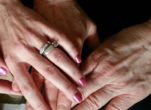
Feeding Hope
For weeks I’ve been trying to write this piece about hope. I’m a writer, businesswoman, mentor, activist, and motivator in my community. People turn to me in times of trouble, and I’m supposed to have answers and solutions. I’m supposed to keep it together for my 70-year-old mother. I’m supposed to keep my company thriving. I’m supposed to write several other books. I’m supposed to lose 30 pounds, reduce stress, and get plenty of rest.
And I’m angrier than I’ve ever been in my life, sometimes to the point of paralysis. I know from my 30 years of sobriety that anger is a luxury I cannot afford. This doesn’t mean I can’t be angry, I just can’t wrap it around me like a cloak and suffocate in it. Because of this, I’m careful to not let it consume me, but it’s been my constant companion the last two years, always simmering beneath the surface.
I catch myself holding my breath, waiting for the moment things will return to some kind of normal. I reach out daily to my LGBTQ, African American, Muslim, Jewish, and Latino friends. “How are you doing? You okay?”
Their responses are the same. “I’m hanging in there. I’m tired. I don’t know what to tell my kids.” I’m not a parent and have no idea how to respond. I swallow another lump of grief and feel it plunk down in my belly along with the rest. I tell my friends I love them, then try to get on with my day.
My mother comes to my house and bursts into tears. “They’re all bastards! I hate them!” she says through grief and gritted teeth after watching the morning news. I rub her back and tell her it’s all going to be okay, that this won’t last forever. I send her videos of baby goats in pajamas and kitten compilations, anything to distract her from her fears.
I see three camps of people in America right now: those relishing in the suffering of others, those who’ve turned away either from disinterest or self-preservation, and the rest of us who are trying to maintain the delicate line between awareness and sanity. My friends are diligent with self-care, and much better at it than I. I cannot look away, even though it might make many days easier to get through. I must bear witness and do what I can to resist the onslaught against basic human dignity and decency. My privilege is well intact. I can turn off the computer or the news, whereas generations of Americans live with this fear and dread their entire lives. Despite any discomfort, I must do what I can to be an ally and extend my privilege to anyone in need.
As an alcoholic and addict, I couldn’t get sober until I hit bottom. Although painful, it was a necessary part of my recovery. From there I could see all the broken parts of myself I’d tried so fervently to disguise with smoke and mirrors. Once I was able to be honest, I had a chance to heal. America is experiencing her own version of a bottom. I hate the way it’s happening, but I can’t deny the value in seeing the cracks and where we can and need to do better. I’m also grateful for all of the separate groups who now work together as one huge force for progress. The last two years have burst through my boundaries of comfort and open-mindedness, and I’ve never felt more humbled to be human.
My entire adult life has been spent gluing the pieces of myself back together. I wrote a book about it called Broken Bits and Glitter, which describes how through the darkest times, hope—sometimes just a fragment of it—kept me going. Sometimes, hope came in the form of a person, someone who encouraged me to not give up and take one more step. Frequently, it came through by being of service to others. By being a part of a community and sharing my experiences, I was able to be a small part of someone else’s recovery. By not giving up, I was able to get enough distance from the pain to see the benefit of certain experiences, even excruciating ones.
Today, I’m surrounded by countless sources of inspiration. To list only a few, Lindsey is 17. Despite the fact that she won’t be 18 until April, she’s been registering students at her high school to vote, and volunteering for a local political campaign. When she does turn 18, she will be the first person in her entire family ever to vote. My dear friend Soraya is a Muslim feminist revolutionary, trying to be a living bridge between Muslim and Christian communities, and working tirelessly for the rights and dignity of others. Heidi started the Peace for Paul Foundation in Uganda to help orphaned children. The diverse storytellers from ROAR grace our stage and share the most intimate parts of themselves—and by doing so, give others the courage to use their voices. And then, there are my friends raising the next generation of young people, whose courage and compassion just might save us all.
Change is the only thing that’s constant, and the pendulum will inevitably swing the other way. I have no idea what’s coming next, but I know I’m in great company. Hope is everywhere around me, and I cling to it wherever I find it.











0 comments to "Feeding Hope"